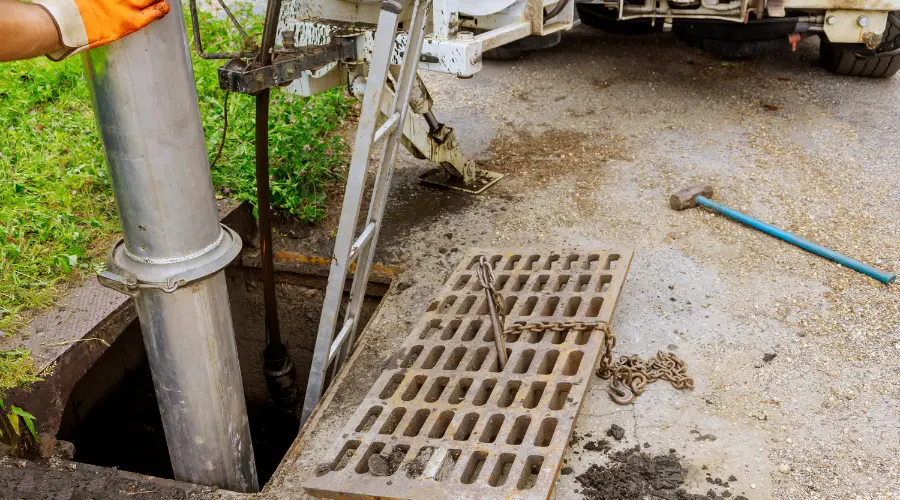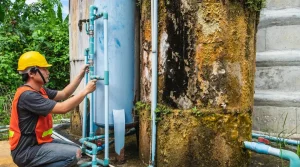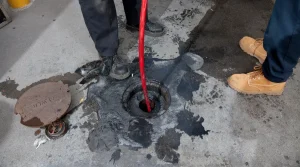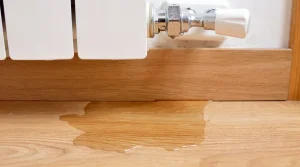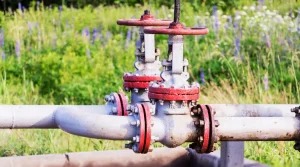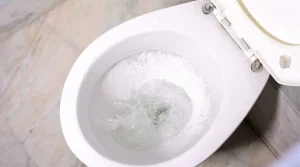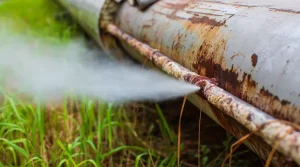Sewer line maintenance is vital for preventing costly repairs and ensuring a healthy living environment. Neglecting this essential aspect of home care can lead to significant property damage and health hazards.
Key Takeaways
- Regular Inspections: Schedule periodic professional assessments to detect and address potential sewer line issues before they escalate.
- Proper Disposal Practices: Avoid flushing non-biodegradable items and disposing of grease down drains to prevent blockages.
- Tree Root Management: Implement strategies to prevent root intrusion, such as installing root barriers and maintaining safe distances between trees and sewer lines.
- Preventive Products: Utilize enzyme-based cleaners to maintain pipe cleanliness and reduce the risk of clogs.
Reach out to BJC Plumbers North Bergen today to discover your repiping options and keep your home’s plumbing running smoothly. Your home deserves exceptional care!
Understanding Sewer Line Maintenance
Sewer line maintenance involves the regular inspection, cleaning, and repair of the network of pipes that transport wastewater from your home to the municipal sewer system or septic tank. Proper maintenance ensures the efficient flow of wastewater and prevents common issues such as blockages, leaks, and root intrusion.
Key Aspects of Proper Sewer Line Maintenance
- Regular Inspections
Scheduling routine inspections is crucial for early detection of potential problems. Professional plumbers often employ closed-circuit television (CCTV) drain cameras to examine the interior of sewer pipes. These advanced diagnostic tools provide real-time visuals of the pipe’s condition, allowing for accurate identification of issues like cracks, blockages, or root intrusions without the need for disruptive excavation. citeturn0search20 - Clearing Blockages
Blockages can result from debris, grease buildup, or invasive tree roots. Regular clearing is essential to maintain unobstructed flow. Avoid disposing of non-biodegradable items, such as sanitary products and wipes, down the toilet, as they can cause significant clogs. Additionally, installing strainers in sinks and tubs can help capture debris and hair, reducing the risk of blockages. - Maintaining Cleanliness
Keeping sewer lines free from debris and buildup is vital. Using enzyme-based cleaners can help dissolve organic material and maintain pipe cleanliness. However, caution is advised when using chemical drain cleaners, as they can corrode pipes over time, leading to more severe issues. citeturn0news26 - Checking for Leaks
Monitoring your property for signs of leaks, such as wet spots, mold growth, or unpleasant odors, is essential. Early leak detection and repair can prevent significant water damage and reduce repair costs. Regular inspections can also identify potential weak points in the system that may develop into leaks if left unaddressed.
Preventive Measures for Sewer Line Health
Implementing preventive measures can significantly reduce the likelihood of sewer line issues. Here are some key strategies:
- Routine Professional Inspections
Arrange regular inspections by a certified plumber or sewer specialist. They can assess your sewer lines’ condition and address minor concerns before they escalate into major problems. Regular inspections also help in identifying potential issues like infiltration and inflow (I&I), which occur when water other than wastewater enters the sewer system through defective pipes, joints, and manholes. citeturn0search19 - Proper Disposal Practices
Avoid disposing of grease, oils, and non-flushable items down the drain. Use strainers in sinks and tubs to capture debris and hair that may cause obstructions. Educate household members about what can and cannot be flushed or poured down the drain to maintain a healthy sewer system. - Tree Root Management
If you have trees near your sewer lines, implement strategies to prevent root intrusion. Installing root barriers can prevent roots from invading the pipes, and regularly trimming tree roots minimizes the risk of damage. Additionally, consider planting trees at a safe distance from sewer lines to reduce the likelihood of root intrusion. - Use of Preventive Products
Consider using sewer line cleaning products that break down organic material and reduce the likelihood of clogs. Enzyme-based cleaners are a safer alternative to chemical drain cleaners, as they are less likely to damage pipes. Regular use of these products can help maintain your sewer system’s health.
The Importance of Regular Sewer Line Maintenance
Regular sewer line maintenance is vital for several reasons:
- Prevents Costly Repairs
Routine maintenance helps catch minor issues before they escalate into major problems, saving you from expensive repairs. For instance, addressing a small leak promptly can prevent the need for extensive pipe replacement in the future. - Avoids Health Hazards
Proper maintenance prevents sewer backups and leaks, which can pose serious health risks due to exposure to wastewater. Sewage exposure can lead to various health issues, including gastrointestinal illnesses and infections. - Protects Property Value
A well-maintained sewer system contributes to your property’s overall value by preventing damage that could affect its structural integrity. Potential buyers are more likely to invest in a property with a reliable and well-maintained sewer system. - Reduces Emergency Situations
Regular care decreases the likelihood of sudden sewer line failures, minimizing disruptions and preventing emergencies. Emergency plumbing services can be costly and inconvenient, making preventive maintenance a more practical approach. citeturn0news24 - Improves System Efficiency
Routine maintenance ensures your sewer system operates efficiently, reducing the likelihood of slow drainage or blockages. An efficient system contributes to the overall comfort and functionality of your home. - Increases Longevity
Proper care extends the lifespan of your sewer lines, delaying the need for costly replacements and repairs. Investing in regular maintenance can save you money in the long run by prolonging the life of your sewer system.

